Arriving at Fussen late in the afternoon we checked into the Hotel Luitpoldpark; very nice. It was still daylight so we had time to explore the town. Walking through the main street we enjoyed looking at the quaint old buildings, some with frescoes, hanging wrought iron signs, a violin on an outside wall, and attractive open-air dining. The violin is significant as Fussen became an important center of German violin-making in the Baroque period.
Fairy Tales of the Brothers Grimm
Found a particularly fascinating shop filled with gnomes,elves,sprites and fairies,wonderful expressions full of mischievousness and humor. Unfortunately it had closed for the day, (or perhaps fortunately) items a bit too large to take home anyway, but would liked to have had a better look. Germany is seeped in myths and fairy-tales dating back to medieval times, and of course the famous fairy-tales of the Brothers Grimm. Our tour was along the Romantic road, however there is also a tour of the Germany Fairy Tale Route covering the towns, castles and forests described in the fairy tales (Rapunzel, Red riding hood,Pied Piper etc.).
Former Benedictine Abbey
The ancient, somber building below is the former Benedictine Abbey of St Mang founded in the first half of the 9th century. Saint Magnus or St. Mang, a missionary saint in southern Germany settled in Fussen, built a cell and small chapel. St Mang died on 6th September, the actual year of his death is unknown. His bones buried in the small chapel but later moved to the crypt of St. Mang Basilica. Saint Magnus became the Patron Saint of Fussen and the spiritual foundation for the Abbey.
Gateway to the Alps
There were also political reasons for the founding of the abbey at Fussen. It lies in a key position on the medieval road from Augsburg across the Alps to Upper Italy. The Fussen Gap was also of importance, this is the place where the Lech River emerges out of the Alps. Both the Bishops of Augsburg and the Holy Roman Emperors recognized its strategic importance to their causes.
Former Abbey now Fussen Town Hall and Museum
In 1909 the town acquired the Benedictine Abbey (but not the Church). The north wing of the old Abbey now used as a Town Hall and the south wing as the Fussen Museum. This is an important building historically and now displays the history of the town. It also houses one of the finest collections of historical lutes and violins in Europe and related stringed instruments, a testament to the towns tradition of producing fine stringed instruments from the 16th – 19th century.
Historically Fussen has been famous for its stringed instruments for centuries with the first European lute-makers’ guild founded in Fussen in 1597. From the 16th century organ-building developed into a traditional craft in Fussen, many of the baroque organs can still be found in the churches of medieval towns. During the 18th century eighty violin-makers were working in the town of Fussen, their instruments in great demand throughout Europe. Today there are only two.
Holy Ghost Hospital Church – Rococo Art
Near the Abbey is a small church the exterior richly decorated with frescoes; this is the “Holy Ghost Hospital Church” built in the 18th Century. Though small, the white-walled interior decorated lavishly with rococo art is quite beautiful (shades of the Wies Church). The Holy Ghost Hospital it the large building at the rear of the church.
Continuing through the town we noticed the tower of High Castle visible behind the street shops as we walked on down to the river. There are two distinct towers in Fussen, the church tower next to the entrance to Mang Basilica and the watch tower on the Castle Wall.
Snow-capped Alps
Fussen is on the Lech River and quite a pretty town with snow-capped Alps in the distance. Downstream from the bridge a picturesque scene with the beautiful clear blue-green waters of the River Lech, the houses, and forest trees along the riverbanks.
Benedictine Abbey
Standing on the bridge we looked back towards the enormous complex of the St Mang Basilica and Benedictine Abbey constructed between 1696 and 1726. The tower and church dome of the Basilica can just be seen behind the monastery. It is necessary to walk around the street to the other side of the Monastery to have a closer look at High Castle and the Basilica.
High Castle at Fussen
The Hohes Schloss” (High Castle) is one of Bavaria’s largest and best preserved late Gothic Castles. It has a long history dating back to roman times when a fortress stood on the hill. When Fussen became a town between 1274 and 1286 under King Rudolph of Hapsburg, a wall was built around the hill for protection.Later in 1321, Duke Ludwig of Bavaria attempted to turn it into a castle. This didn’t suit the Bishop of Augsburg who prevented it.
However, in 1322 Bishop Frederic completed the partly built castle and it became the summer residence of the Prince Bishops of Augsburg. The castle construction extended between 1489 and 1504, is the structure seen today. The distinctive Gate Tower is a later addition completed in 1506. The Tower next to the church is from the same period going by the style of architecture. The Castle is now an Art Gallery, a branch of the Bavarian State Collection of Medieval Paintings from the 15 and 16th Centuries.
St Mang Basilica
It is certainly worthwhile looking at the interior of St Mang Basilica. In Baroque style, a forerunner to the very decorative rococo style viewed in the Wies Church. The interior of St Mang’s very austere and regal by comparison, an impressive altar piece; ceiling frescoes; high vaulted ceilings and a great deal of polished marble. A very weird-looking bronze candle holder in the form of a dragon or some other mythical creature caught my attention, seemingly out-of-place in this austere church.
Our visit was late in the afternoon, the light from the high windows casting eerie grey shadows across the marble walls and floors, very cold inside the church. I imagine it would be freezing down in the crypts, not another soul about, really spooky, decided to give it a miss. I didn’t know it at the time but the oldest fresco in Germany is found in the crypt of St Mang. An opportunity missed!
Evening closing in we headed back towards our hotel checking out restaurants as we went. Decided on the quaint building near the hotel which is an Italian restaurant. Proved a good choice, authentic Italian cuisine and nice choice of wines all within our budget. Very cold outside only a short distance to the beckoning warmth of Hotel Luitpoldpark.
Excited about our trip tomorrow – Neuschwanstein Castle here we come….
Related Posts:
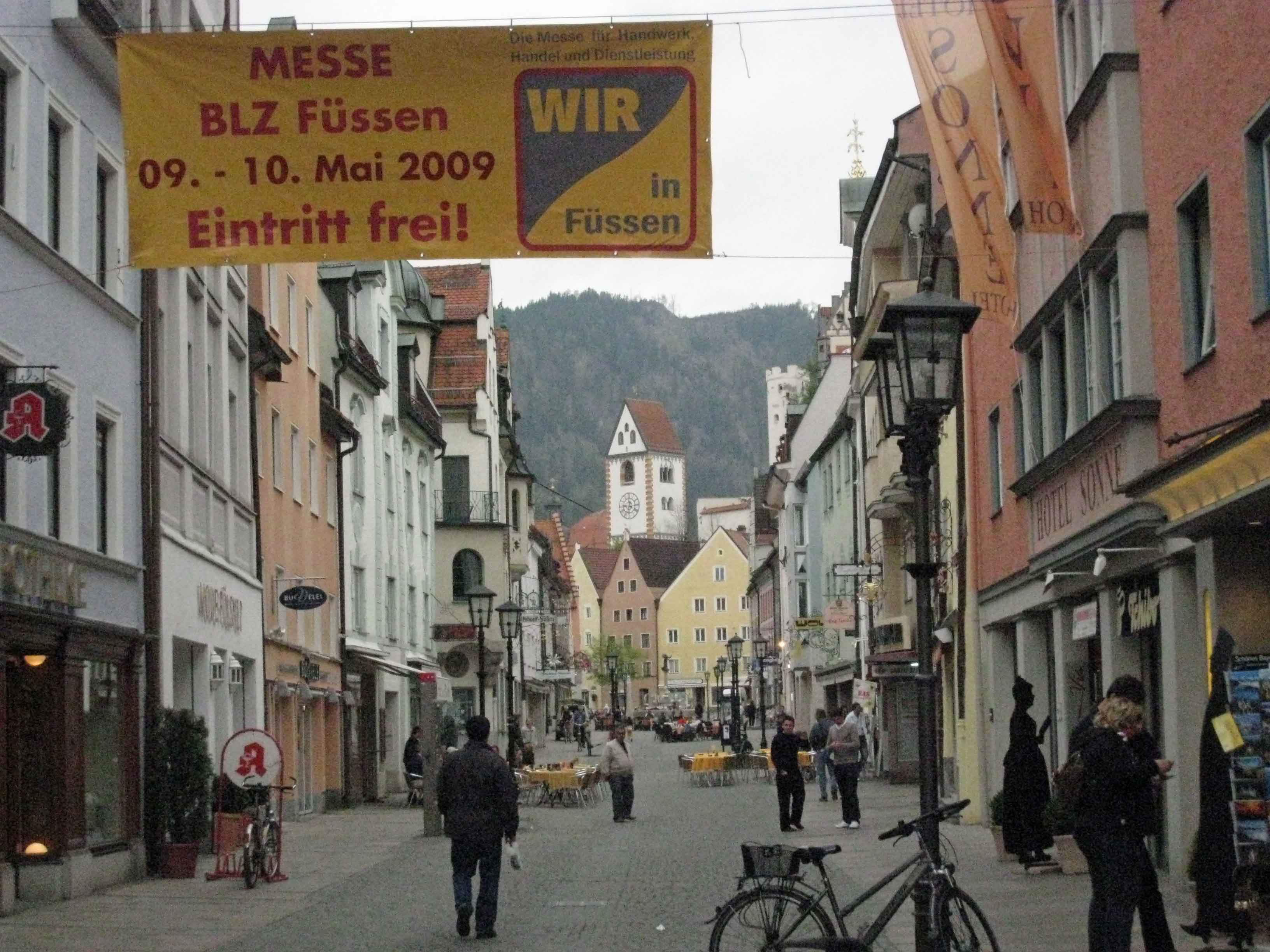
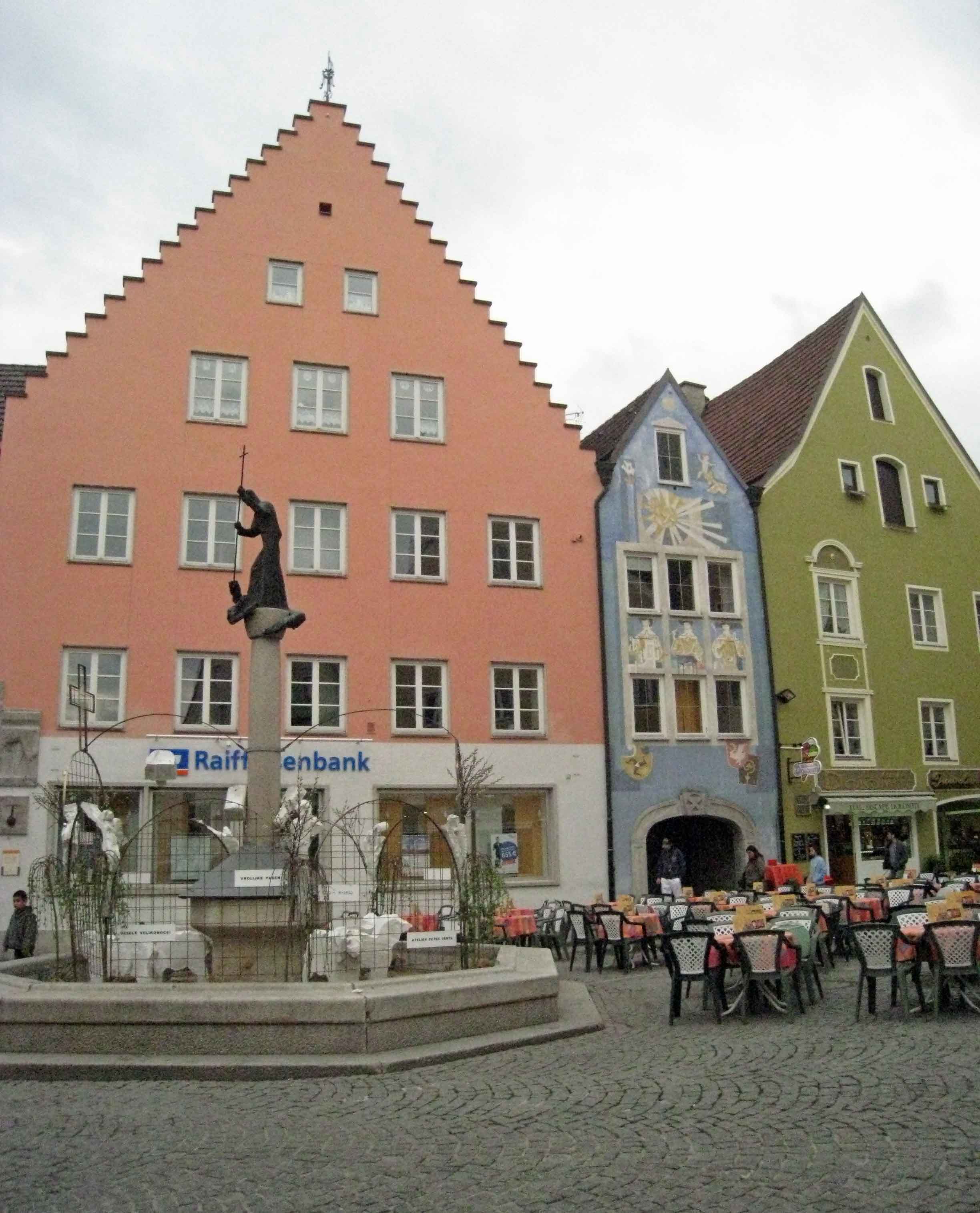
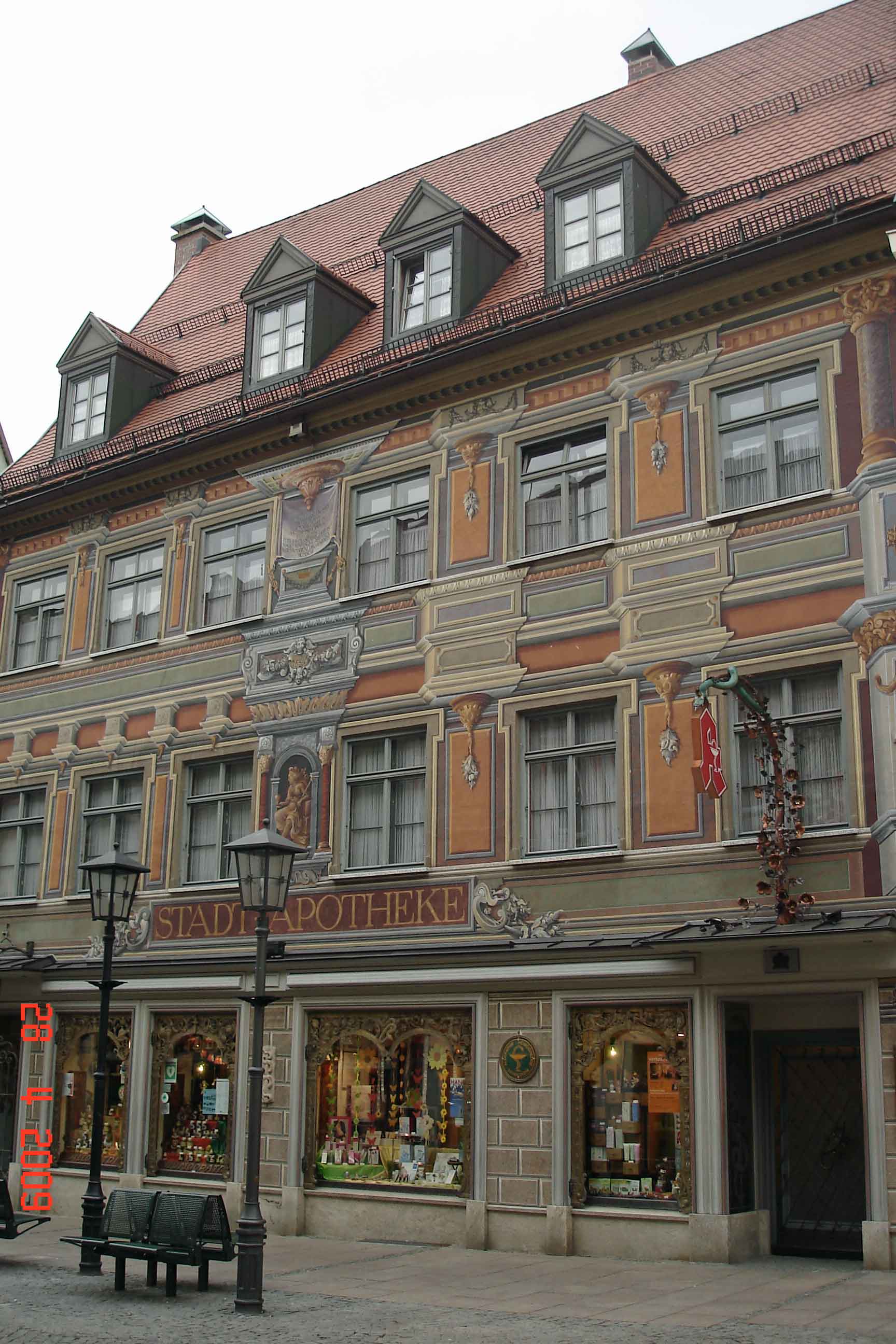
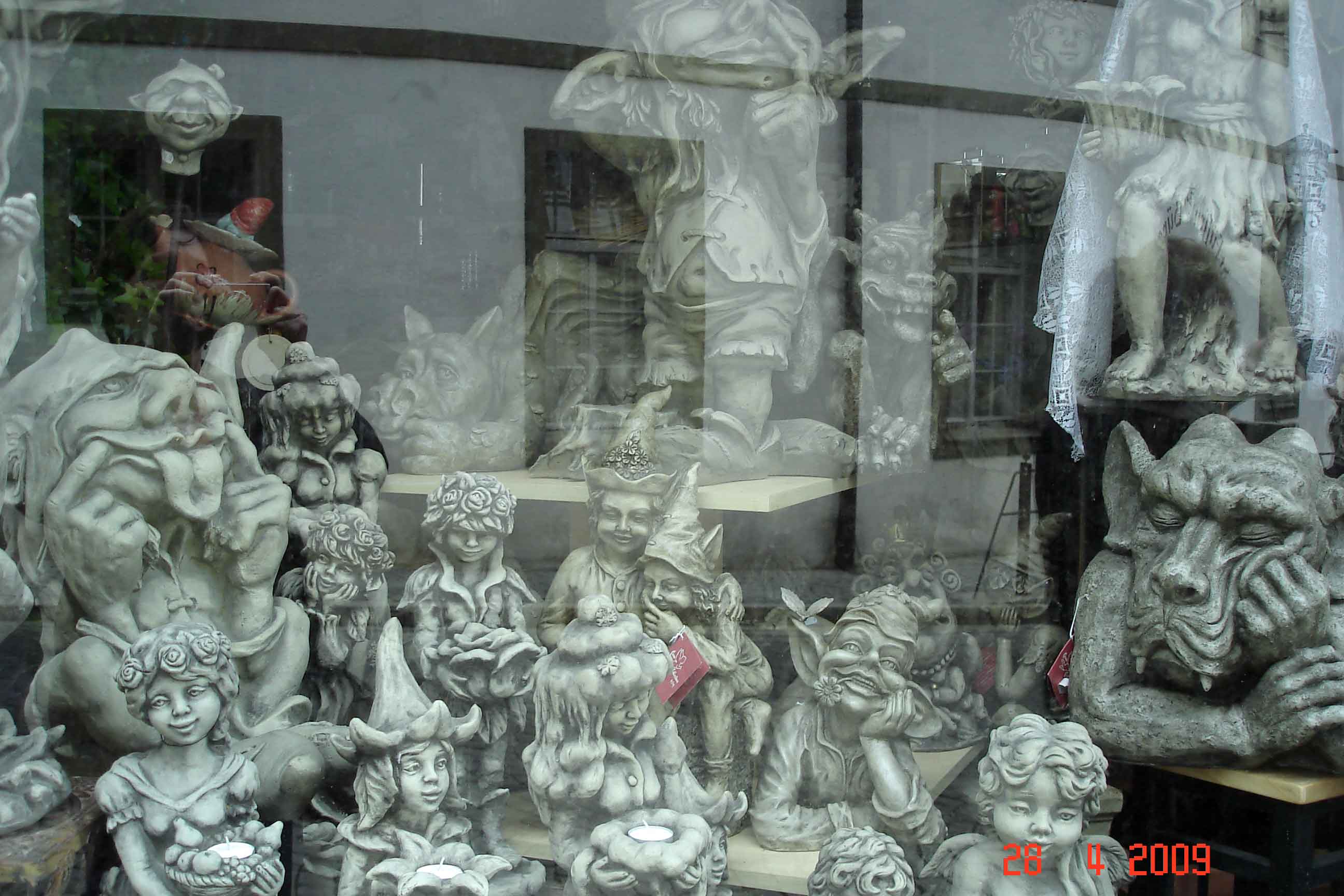
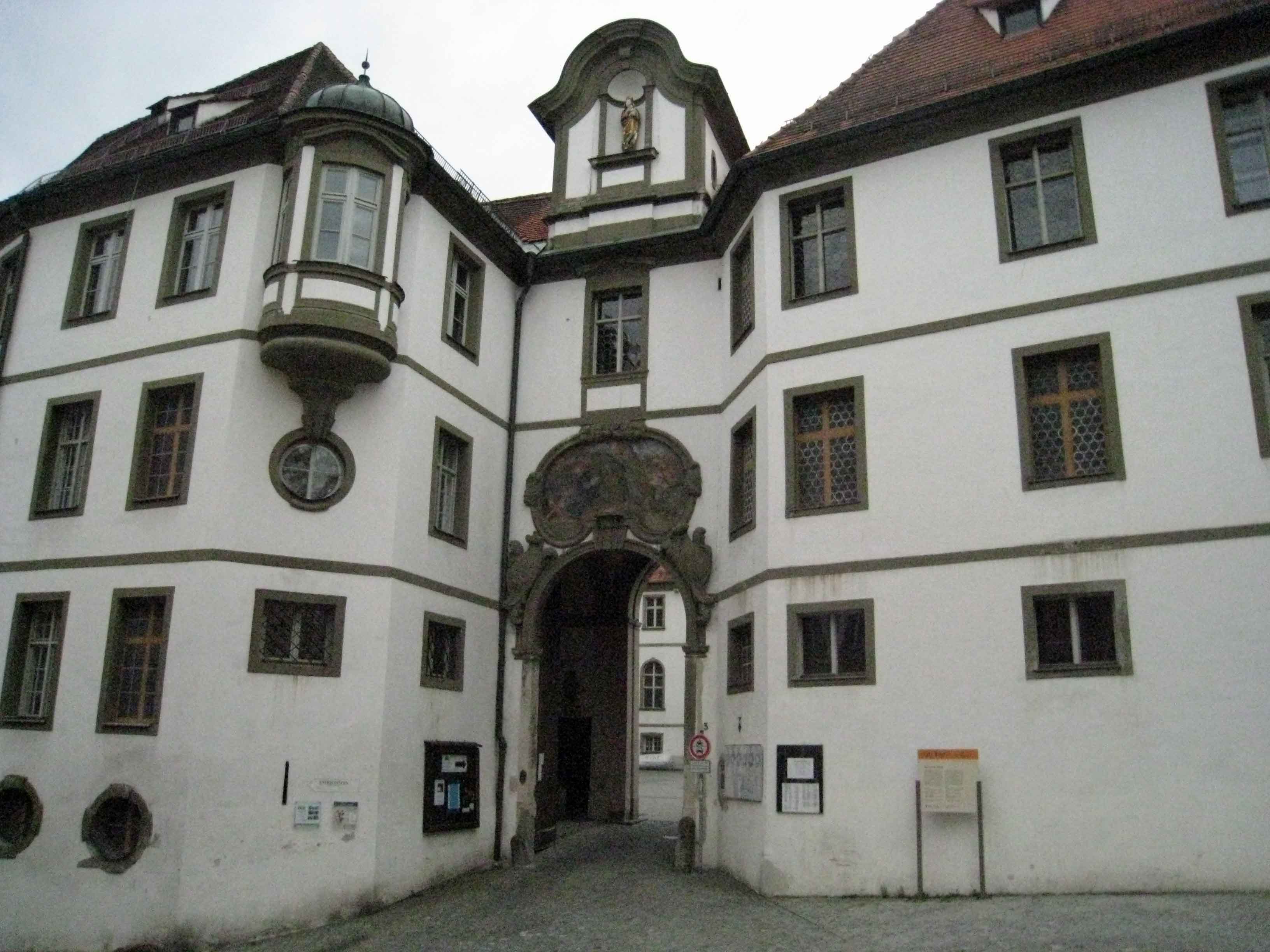
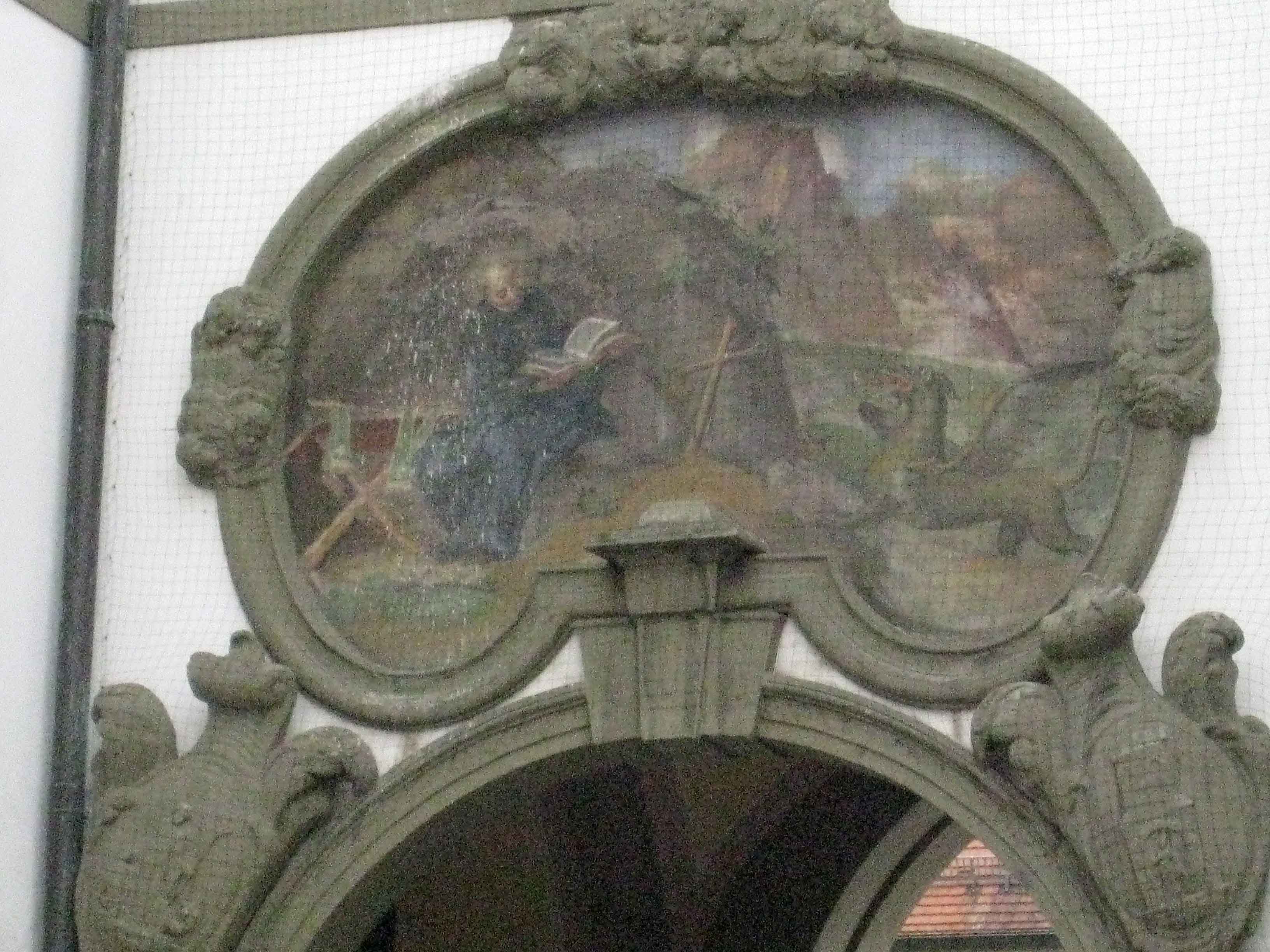
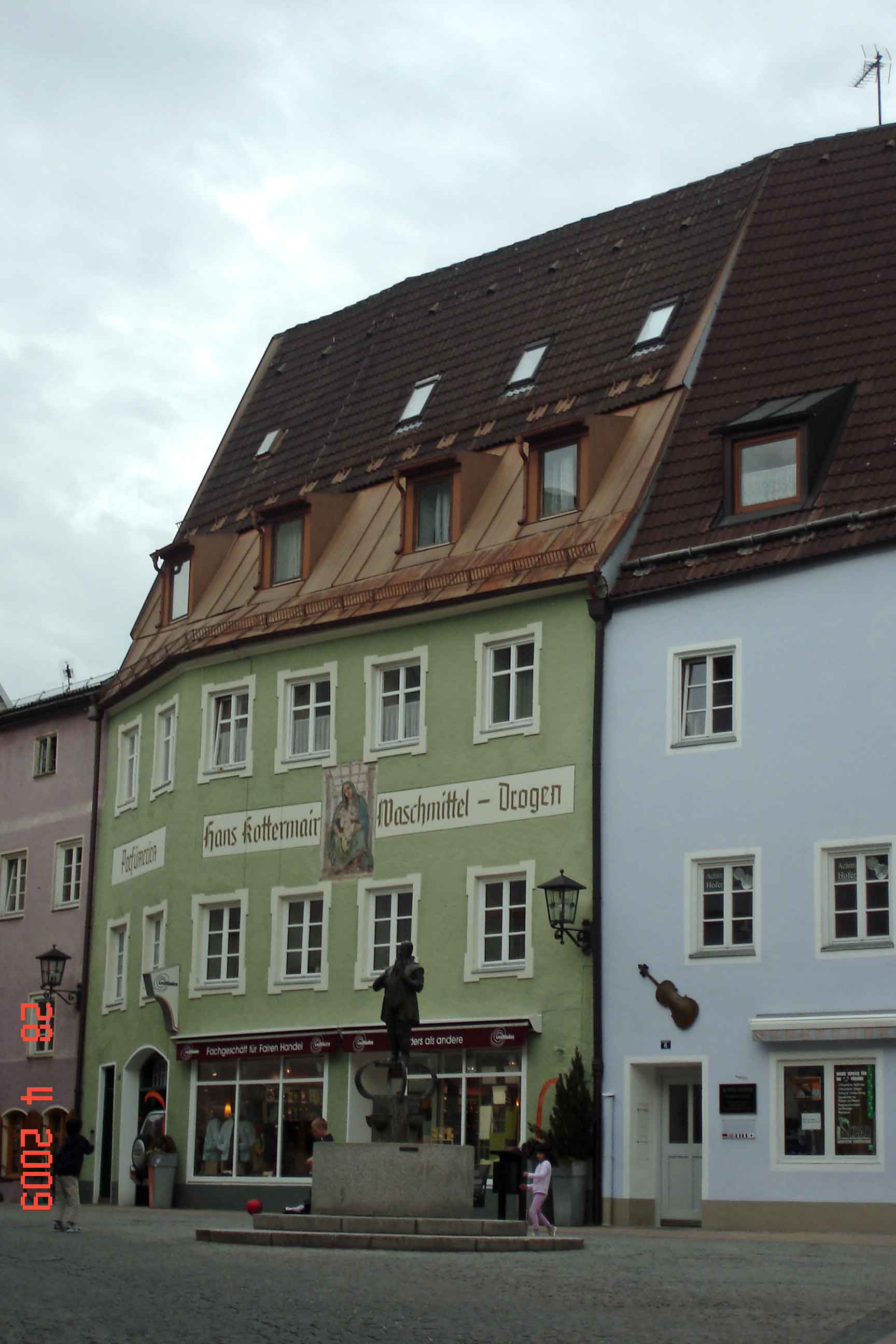
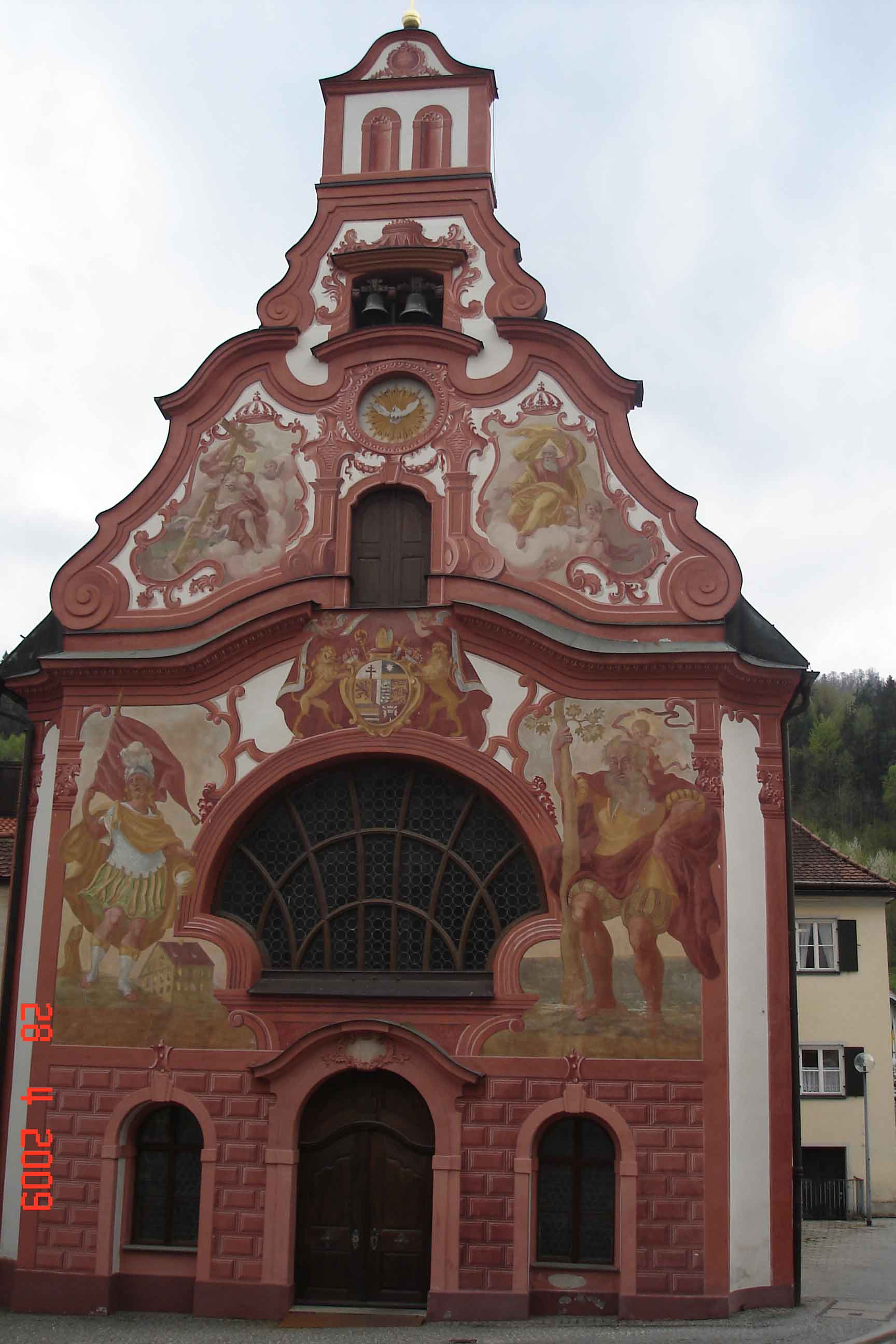
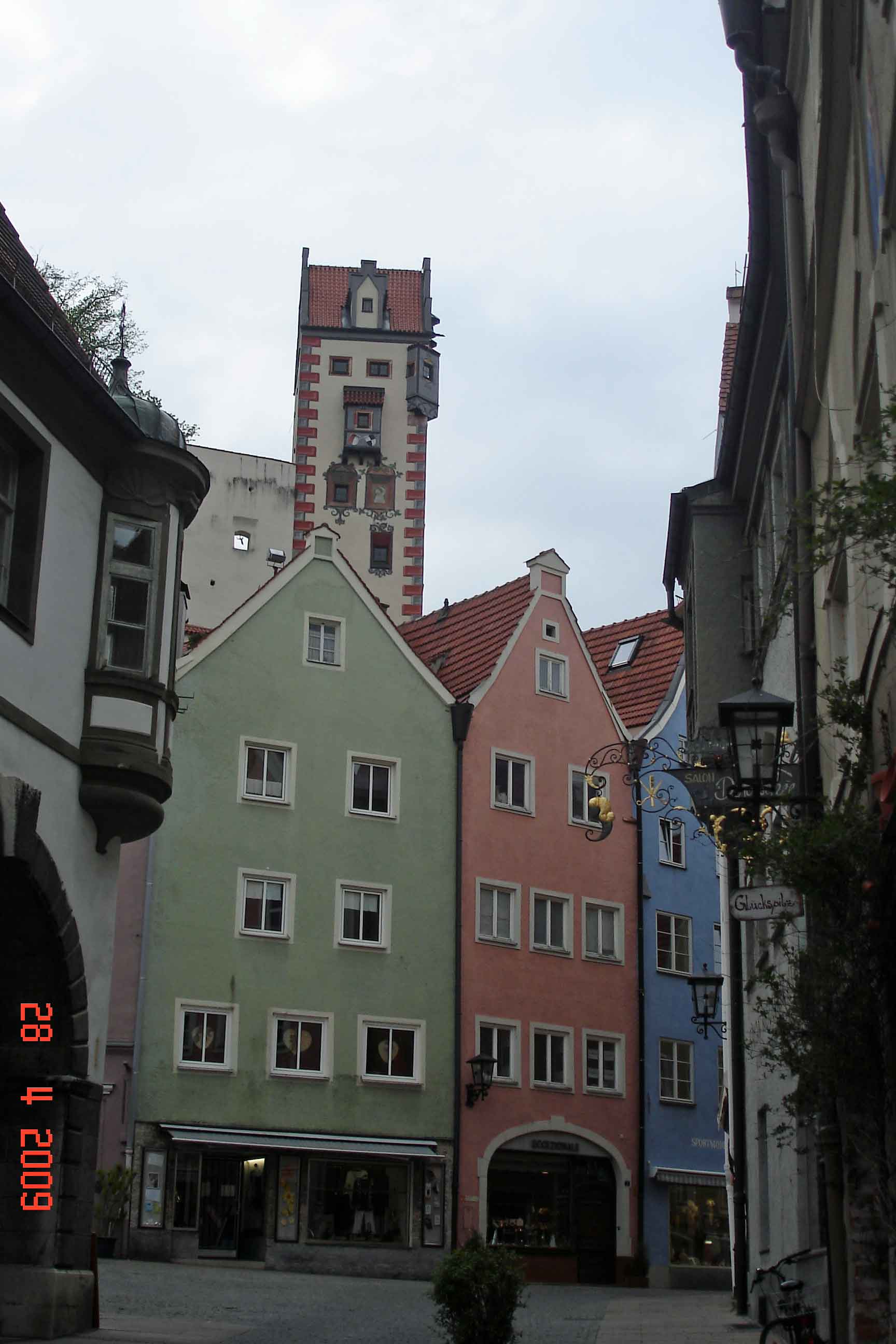
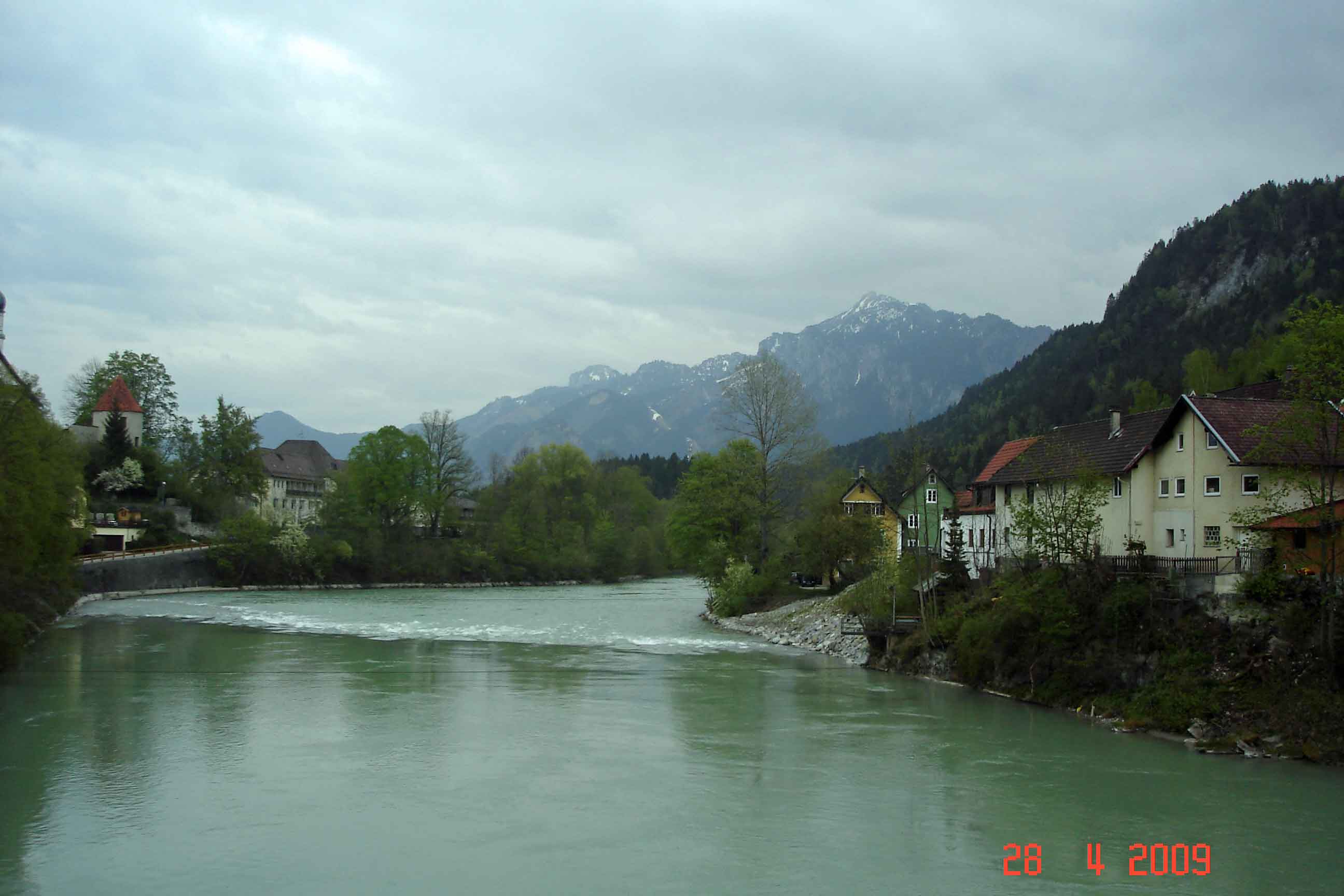
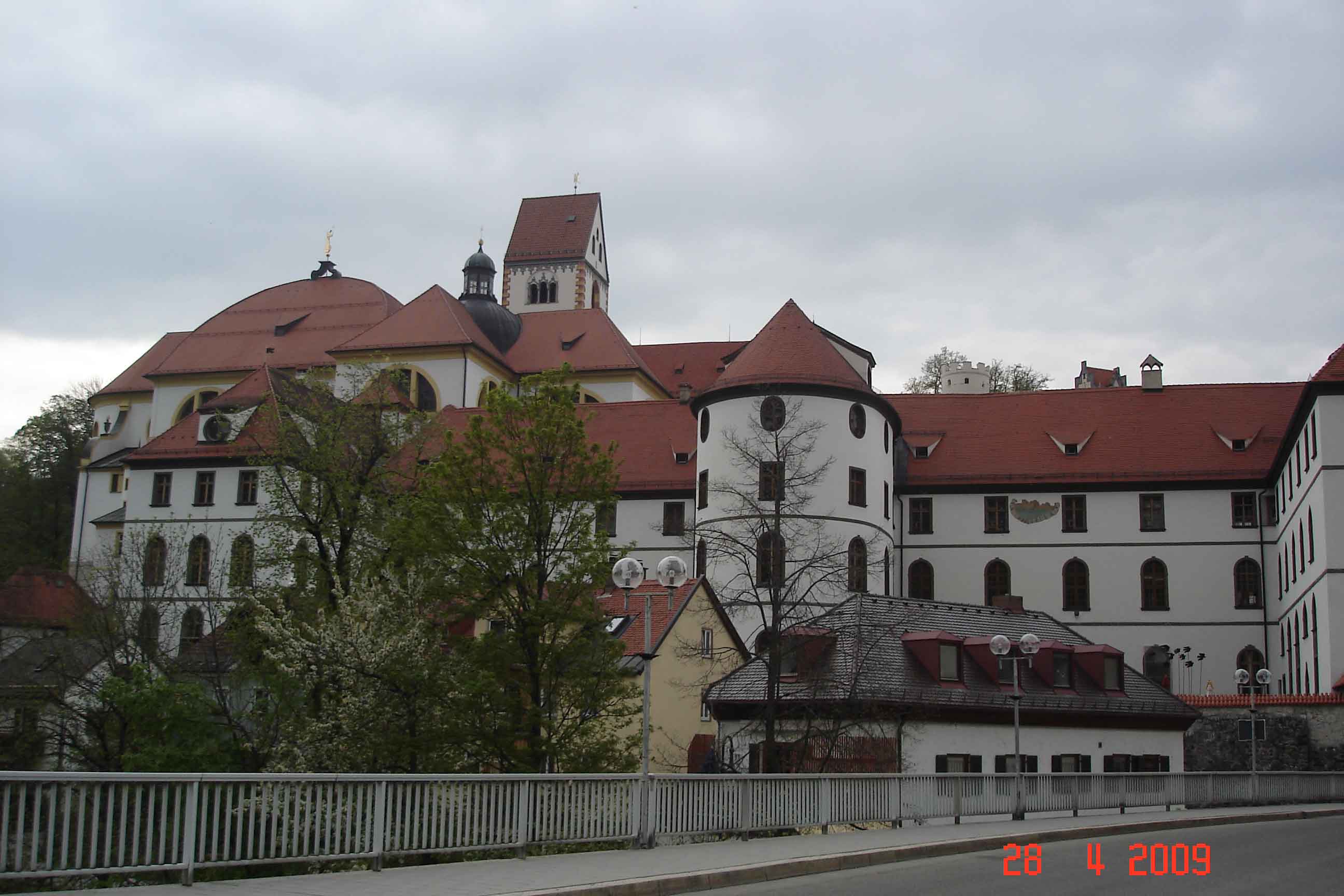
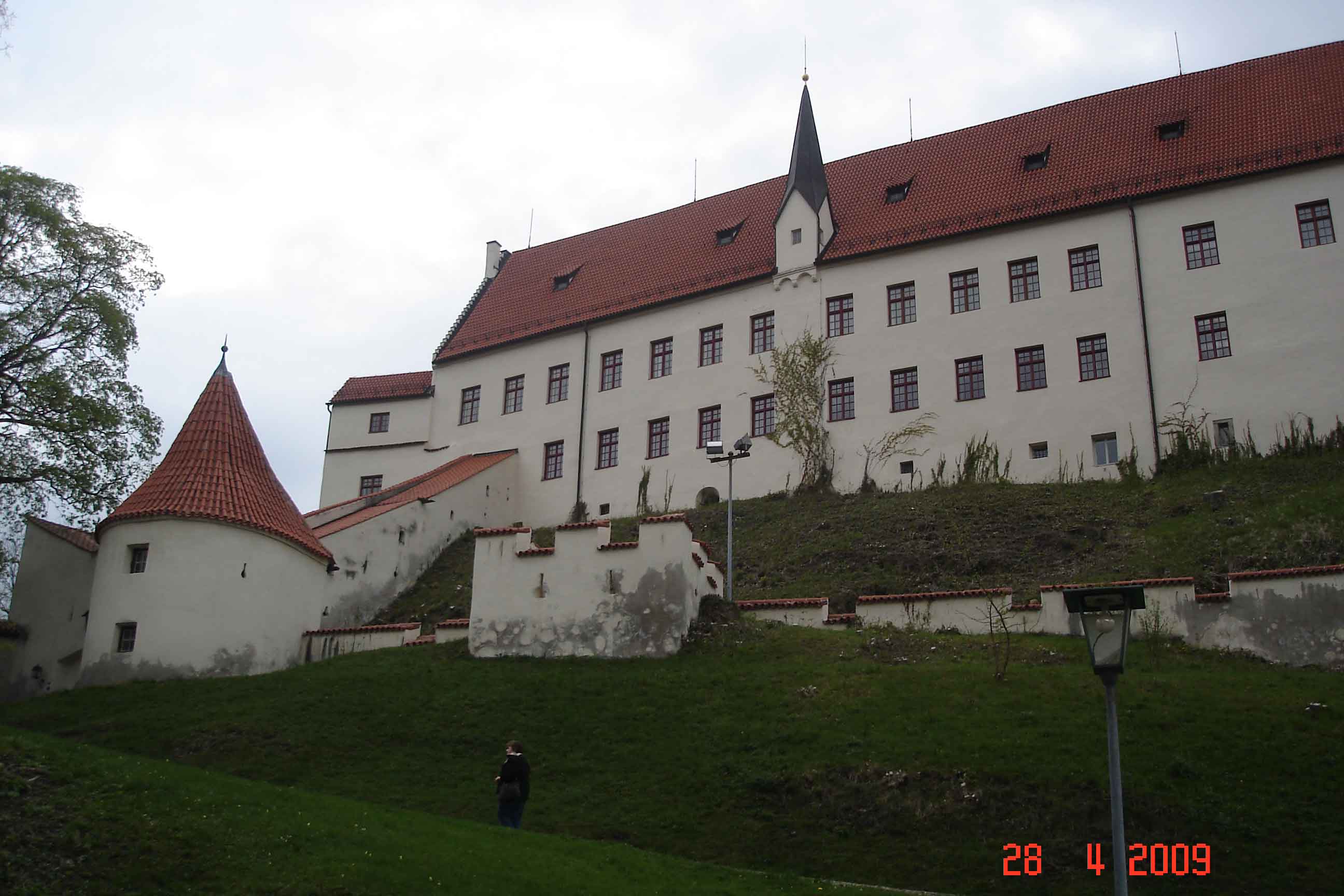
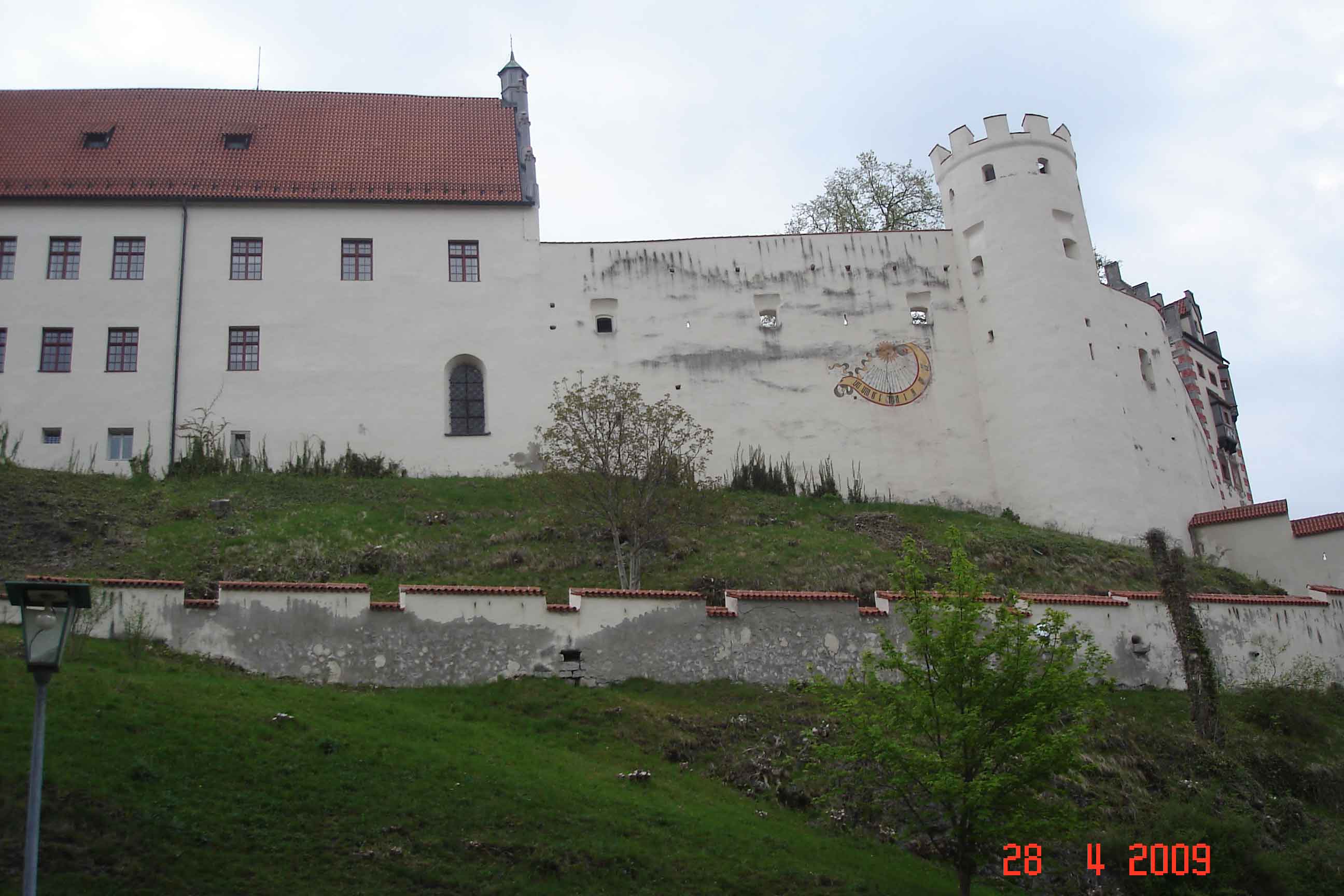
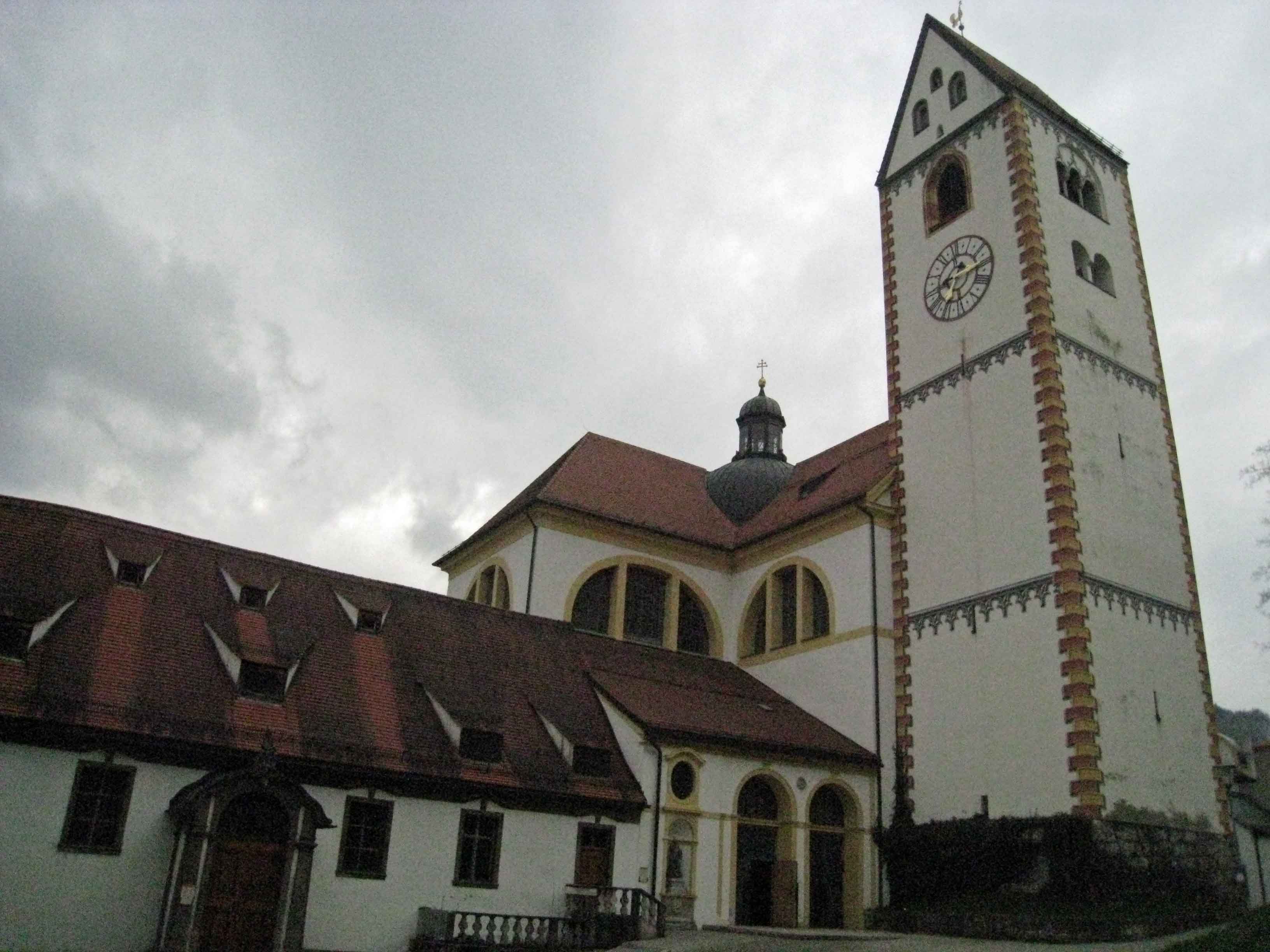
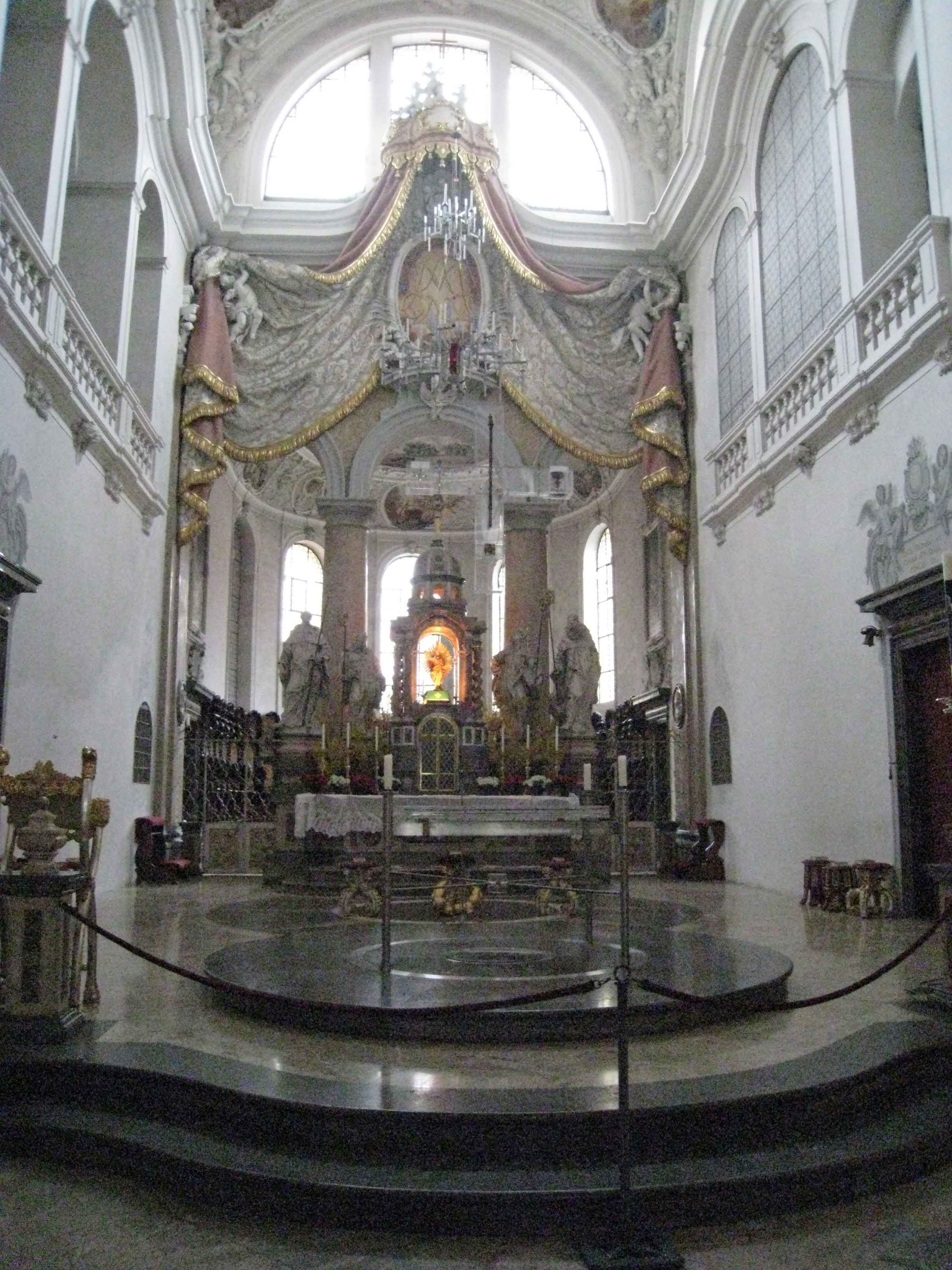
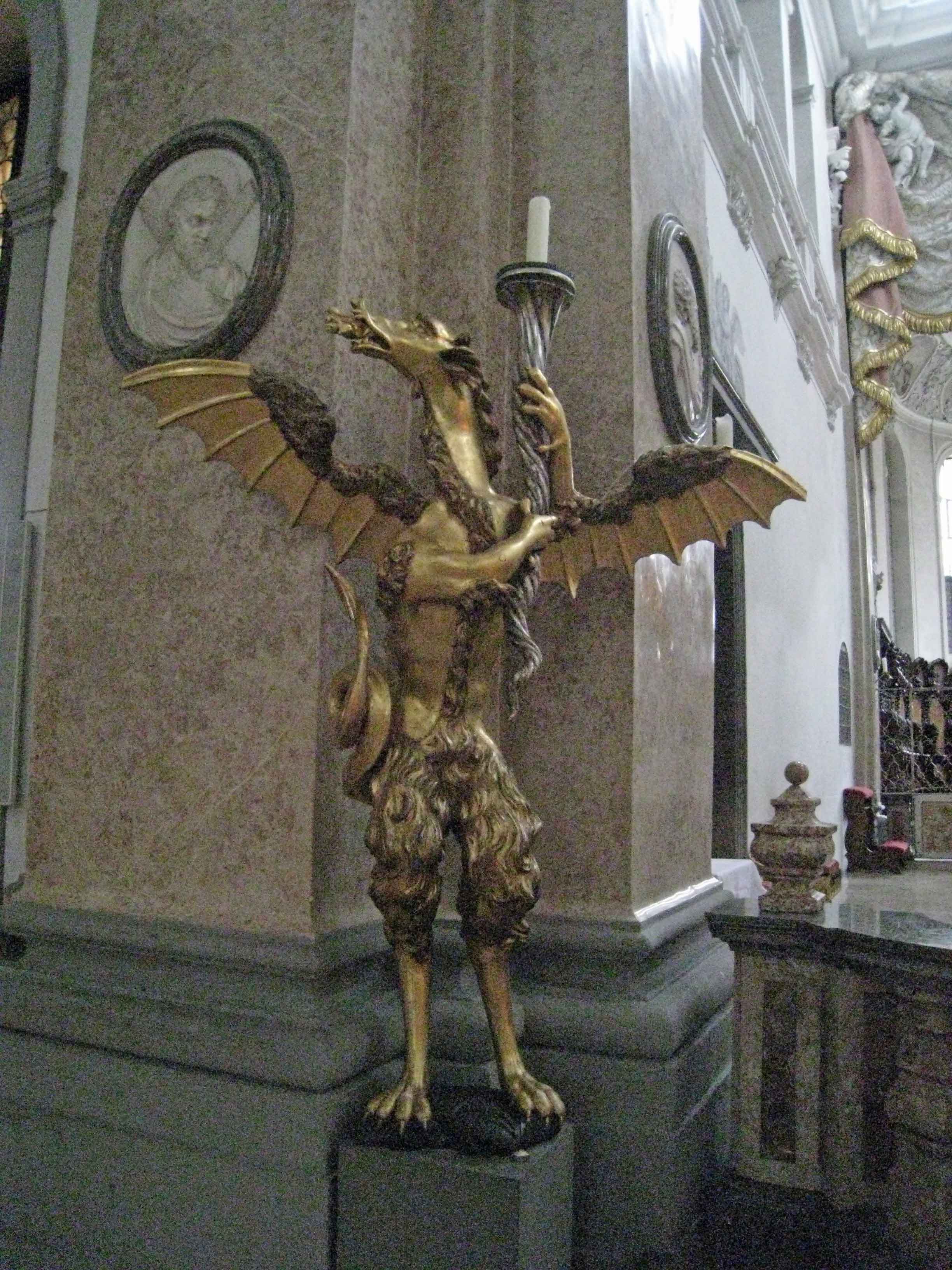
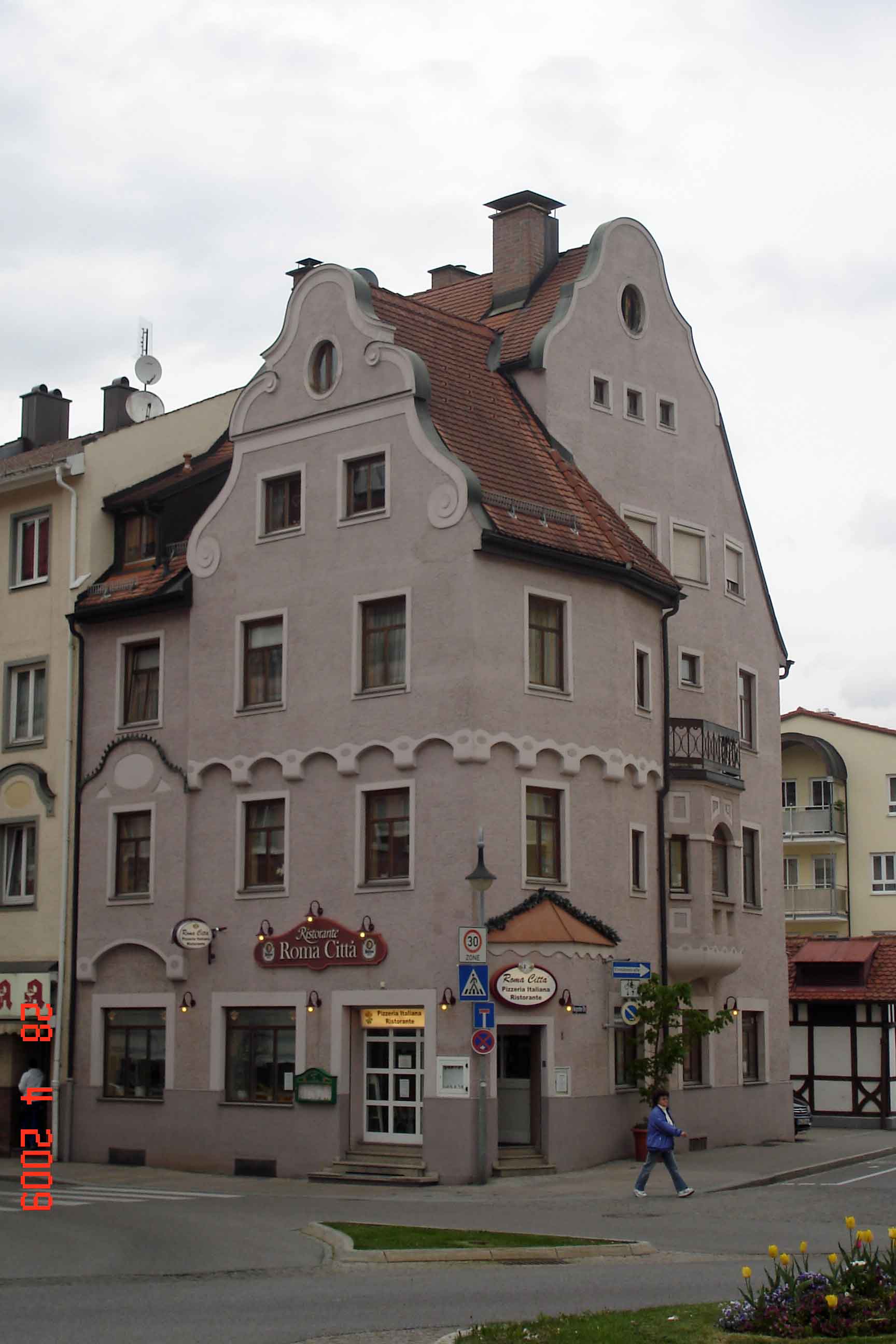
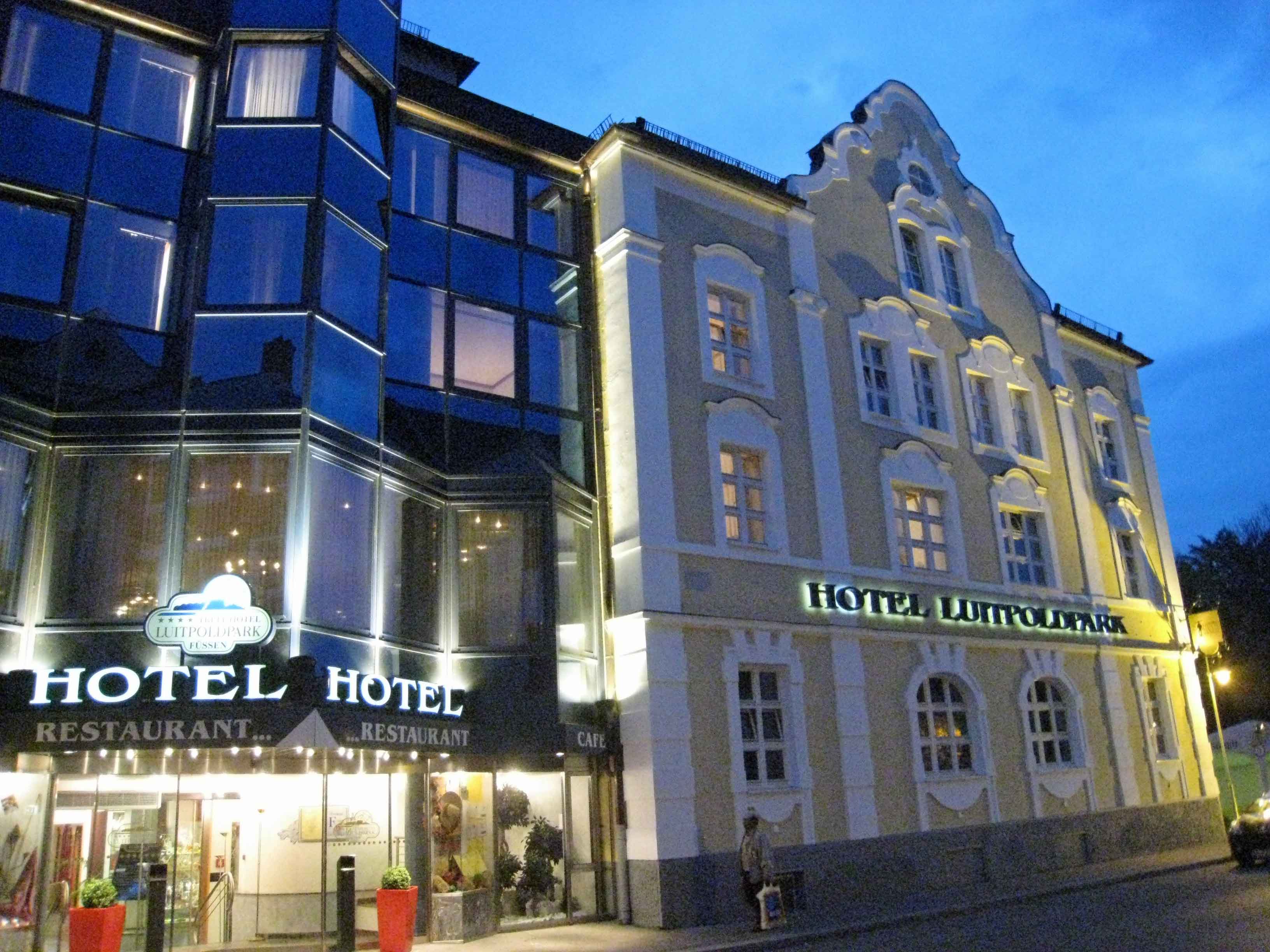
I’m sure regretting not visiting Füssen now. Such a lovely little town; so charming. Love your pictures. And have fun at Neuschwanstein (great castle)! Hope you get a clear day.
Hi Marsha, Yes, Fussen was worth the visit, had quite a lot to offer. Lucky we did have a clear day to visit Neuschwanstein, it lived up to all expectations. Loved it!
What a nice place! The main street (1st photo) looks charming.
Fussen was a surprise, proved a very pretty and interesting little town on the river,quite a lot to see with historical castles and ancient Abbbey’s. Thanks for your comment.